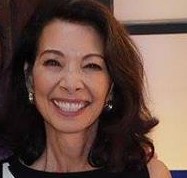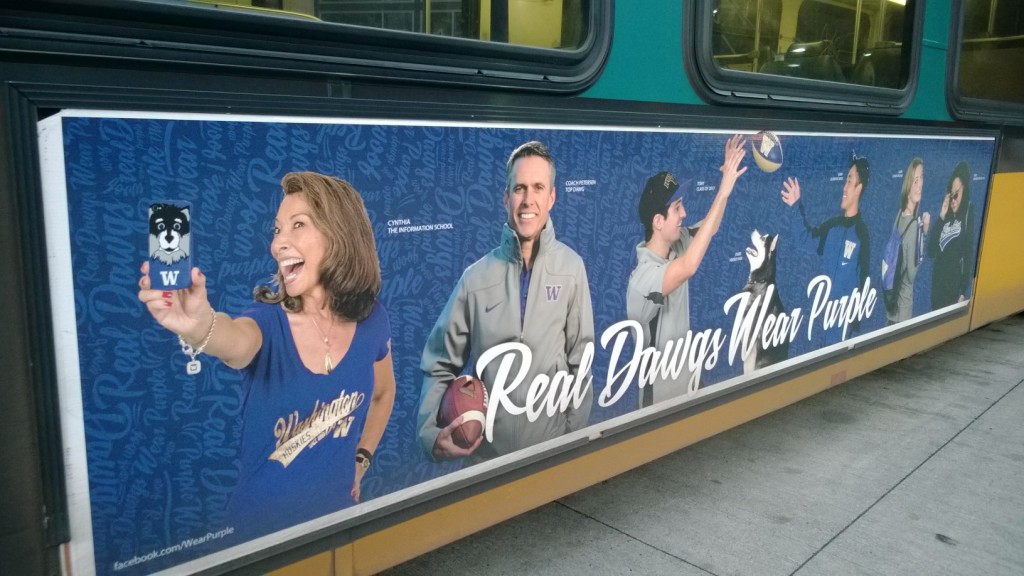
What is your name, current workplace and position?
Cynthia del Rosario
University of Washington (UW) Information School (iSchool)
Diversity Programs Advisor
Where did you attend school?
UW BA; UW MEd; UW Ph.D. – in progress.
I am a double-UW Husky, trying for a triple, and I am a Seattleite through and through.
How long have you been an APALA member? Why did you first join?
I joined APALA in 2011 because of Florante Ibanez, a dear friend and colleague, who was the APALA President that year. Florante was my first “friend” at ALA. I joined the UW iSchool in 2007 and started attending ALA in 2008, but since I am not a librarian, I was always a bit of an outsider at the conferences. I can’t remember how Florante and I met – most likely at an APIA/APALA related session, so being his friendly self, Florante reached out to me, and we found out we had numerous mutual friends through the Seattle Filipino American community. Florante invited me to APALA Annual and MW events over the years, and I gradually made some wonderful friends and colleagues and found a beautiful community of amazing, smart, funny and caring people—I finally found my ALA “family and home” with APALA.
We’re very interested in the diversity of ethnic/cultural heritage within APALA. Please share your ethnic/cultural heritage with us and any other background information, as desired.
My mom is Chinese American, and my father was White. I always tell people that, including my eight-year-old granddaughter, our Chinese side of the family has been in Seattle for six generations. Not many White Seattle families can make that same claim, and yet, Asian Americans are still seen as “forever foreigners.”
Then there is another side to my identity story. No offense to my people, but back in the day and still today, Chinese American communities were/can be very ethnocentric, and I was definitely not viewed as a member/insider of that community. As a result, I ended up growing up in Seattle’s Filipino-American community, which was much more open to mixed-race people. I often fondly refer to myself as a “faux Filipina.” As I have grown older, I have also grown to love and embrace my mixed-race/ethnic heritage and have found racial ambiguity liberating and useful in navigating entrée and relationships among a wide range of racial/ethnic/cultural groups.

What aspects of librarianship are key to your personal satisfaction at work? Please share some of your professional goals and interests.
My relation to the field of librarianship is through my position as Diversity Programs Advisor at the UW Information School. I work with the iSchool as a whole: students, faculty and staff. My work crosses diversity outreach, recruitment and retention for students, faculty and staff; policy and procedures; curriculum development; community outreach/connections, faculty/staff mentor/advisor for iSchool diversity student groups; diversity programming and event planning and more!
My work is about access, inclusion and an equitable and excellent educational and/or work-life experience. I am very focused on curriculum development, academic and social learning environments and institutional structures and power.
Some of the changes related to diversity that have taken place since I started at the iSchool include:
- Each of our four academic programs now all have a required diversity question that every applicant completes, which puts diversity into the admission matrix.
- Every faculty job now has a required Diversity Statement, similar to Research and Teaching Statements, that each faculty applicant must submit, regardless of the position, not just for “diversity” positions, again, putting diversity into the hiring matrix.
- November is Diversity Month at the iSchool, with two to three events each week, bringing our community together around diversity, looking at the role that we each can play in advancing diversity at the iSchool
- Better than a Brown Bag Diversity Lunch series (because we provide lunch!) brings together students, faculty and staff, twice a quarter, around a wide range of diversity topics, e.g. Disability Justice; He, She Xe, They?; That Awkward Conversation about Race; and more!
- Writing Across Borders—an interactive seminar series to help faculty and TAs better assess, evaluate and support non-native English/ multilingual speakers
- Curriculum Transformation Project—utilizes alumni/community partners to help faculty teaching core courses integrate diversity into their curriculum, pedagogy, assignments and discussions
- Diversity Summit—our Spring Quarter culminating event for diversity. This all-day event is facilitated by nationally known experts in their field. The morning session and activities bring us together as a whole school, and in the afternoon, students, faculty and staff break into their respective groups to discuss issues, concern and solutions related to diversity and their iSchool roles/relationships. Each group is responsible for one actionable item for the following year.
According to a presentation at ALISE 2016 President’s Program by the ALA Task Force on Equity, Diversity, and Inclusion, 87.5% of current librarians are White women, as compared to 88% 30 years ago! This highlights that fact that, despite all of the conversations and commitments to diversity, etc. not much has really changed in the profession with relation to the racial/ethnic diversity of librarians in the field. Given the severe lack of racial/ethnic diversity among librarians and with respect to my work with ALA/APALA, I have two goals/projects that I would like to work on:
- Diversity Recruitment to LIS programs: In order to authentically serve a wide range of communities, particularly communities of color, who are often severely underserved, we must diversify the field of librarianship. Current APALA President Janet Clarke and I have been talking about working with ALA to bring together the ALA ethnic affinity groups to collaborate on focused and deliberate recruitment of people of color to LIS programs and to the field in other ways.
- Diversity Requirement for Accreditation for LIS programs: Diversity in the curriculum will help our field in infinite ways, but two of them would be:
a. Draw more students of color to our field. Many students want to work in their communities to lift them up, and they do not necessarily see librarians as community activists or even as community advocates. By diversifying LIS education and exposing students to ways to serve underrepresented minority (URM) communities, more students will be able to see themselves helping their communities through access to information, technology, social programming, cultural preservation, among other avenues.
b. Since we know that we will not dramatically change the demographics of our field anytime soon, we must also educate White librarians to examine their positionality/White privilege and how to authentically serve communities of color. I know that this work is specifically related to race and ethnicity, and given the numbers above, I feel this is the starting point. There are so many other critical voices to also include: LGBTQ, disability—visible and invisible—and so much more.
Is there anything else you’d like to add?
I am so thankful to APALA for providing “home” for so many of us. Those who attended the open meeting at Midwinter 2016 will remember a very emotional and poignant discussion on being mixed-race, with several of us recalling how we are often viewed as “not Asian enough.” APALA [is] one place that never made anyone feel on the outside and APALA is “home” for so many of us while attending the large and overwhelming ALA conferences, as well as connecting us personally and professionally outside of ALA. I am very enthused about APALA and very enthused about the possibilities around working together to diversify our field!
Interview conducted and edited for length and clarity by Molly Higgins, with assistance from Alyssa Jocson Porter.

